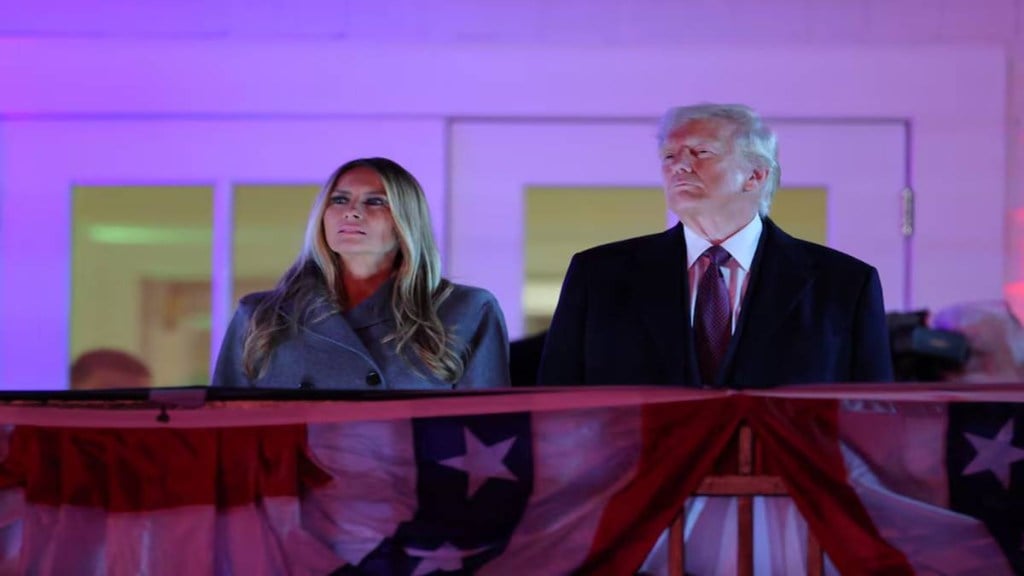As US President Donald Trump prepares for his second term, India’s External Affairs Minister, S. Jaishankar, is gearing up for a critical diplomatic mission in Washington. During a lecture in Mumbai on Sunday, Jaishankar emphasized the significant shifts in global politics that could unfold under the Trump administration. “We may be on the brink of a new era,” he stated, referring to a U.S. foreign policy focused on prioritizing national interests rather than shaping the global order. This could impact India in several key areas, particularly in global trade and immigration policies.
Key Priorities for Jaishankar’s Diplomatic Visit to the US
Jaishankar’s trip to Washington is set to tackle a five-point agenda aimed at reinforcing India’s relationship with the United States under President Trump. One of the primary objectives is to facilitate an early meeting between Prime Minister Narendra Modi and President Trump, which could happen as soon as next month. Modi’s attendance at the AI Action Summit in Paris, where Trump is also invited, might provide an ideal setting for their first face-to-face meeting.
Another crucial point of focus is the Quad Foreign Ministers’ Summit. The Quad — a strategic grouping of the U.S., Japan, Australia, and India — has emerged as a significant diplomatic initiative in the Indo-Pacific region. Jaishankar will be working to finalize the schedule for the summit, which is expected to be hosted in India later this year. This summit will likely play a key role in aligning the Quad nations’ strategic interests amidst growing global uncertainties.
Trade, Immigration, and the Challenges Ahead for India
A major aspect of Jaishankar’s agenda will be navigating the Trump administration’s stance on trade and immigration. Trump’s prior promises to implement “America First” policies, including imposing tariffs and reshaping immigration laws, have sparked concerns in India. For instance, the threat of reciprocal tariffs on Indian products looms large, especially as the U.S. looks to counteract its trade imbalances with various nations.
Additionally, Jaishankar will likely discuss the future of Indian nationals residing in the U.S. In light of Trump’s immigration stance, which has included threats of mass deportations and tightening visa policies, there are concerns over the welfare of thousands of Indian nationals. According to U.S. immigration data, India is one of the top countries with nationals facing removal orders, with many detained under current immigration policies. How this issue develops will be a focal point of the diplomatic talks.
Diplomatic Shifts and Relations with China
In addition to trade and immigration, Jaishankar will be observing the broader shifts in U.S. foreign policy under President Trump. While Trump’s rhetoric during the election was marked by strong criticisms of China, recent gestures suggest a more cooperative approach with Chinese leadership. Trump’s outreach to Chinese President Xi Jinping, including a recent phone call and an invitation to the inauguration, signals potential changes in U.S.-China dynamics. For India, this could be a double-edged sword, especially given its own strategic concerns regarding China’s rising influence.
The Trump administration’s future engagement with China will have significant ramifications for India, especially in the Indo-Pacific region. Jaishankar’s diplomatic engagement will be crucial in ensuring that India’s strategic interests are maintained in the face of shifting U.S.-China relations.
Business Opportunities and the Role of Key U.S. Figures
On the business front, Jaishankar’s delegation will likely meet with prominent figures such as Elon Musk, who has been negotiating with the Indian government for Tesla’s operations in India. Musk’s ongoing discussions with India about tax incentives and regulatory frameworks for electric vehicles and space technology illustrate the growing economic cooperation between the two countries. Musk has expressed optimism about U.S.-India relations, advocating for reduced trade barriers and greater collaboration between the two nations.
Musk’s interactions with the Indian government are particularly significant in light of the increasing role of technology and clean energy in both countries’ economies. Jaishankar’s meetings will likely explore these avenues further, as India seeks to leverage its growing tech sector and renewable energy potential to deepen its economic ties with the U.S.
The Road Ahead for U.S.-India Relations
As Jaishankar prepares for his visit, the future of U.S.-India relations appears to be at a crossroads. The Trump administration’s “America First” policies, while focusing on U.S. interests, could offer both challenges and opportunities for India. Jaishankar’s engagement with the Trump administration will be crucial in charting a course for robust bilateral ties, particularly in trade, security, and international diplomacy.
With the Quad Summit on the horizon, ongoing discussions on immigration, and potential shifts in US-China relations, India will need to navigate these complexities carefully. Jaishankar’s leadership will be key in ensuring that India’s strategic interests are safeguarded, and its relationship with the U.S. continues to evolve in this changing global landscape.

